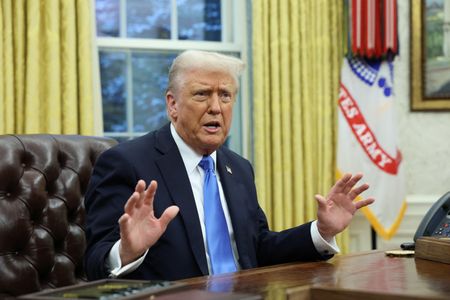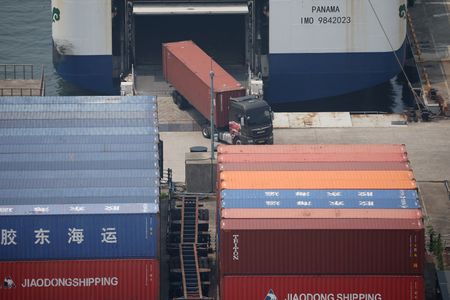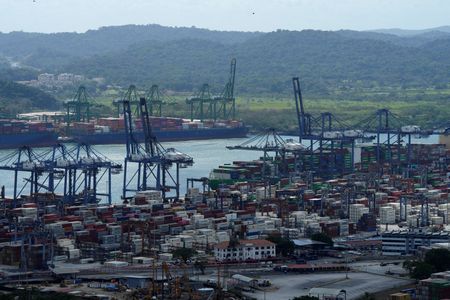BANGKOK (Reuters) – Thailand is hoping it will not face U.S. tariff measures and will do everything to make sure the country is not a target, the commerce minister said on Friday, amid concerns that the country’s trade surplus with Washington could become an issue.
The Southeast Asian country has a plan for negotiations and is ready to adjust to U.S. requests to ensure a good outcome, Pichai Naripthaphan told reporters, adding he would return to the United States for more discussions with U.S. officials.
“Don’t be too alarmed,” he said. “We already have a plan, but we can’t reveal it yet because if we reveal it too much, it will be a problem in negotiations.”
Asked whether Thailand could be subject to U.S. President Donald Trump’s plan for reciprocal tariffs, Pichai said “if we do anything wrong, we can fix it.”
Pichai said Thailand had already prepared plans before he had travelled to the United States earlier this month. He said the trip “was quite fruitful”.
The minister said the two countries had a long and good relationship, noting that U.S. investors are the only foreigners permitted to hold 100% stakes in some Thai businesses.
“We have had this agreement for a long time but people don’t know about it… everyone wants it, but America is the only one to have it,” he said, although he added some sectors such as banking and telecoms were excluded from the arrangement.
On Monday, an official said Prime Minister Paetongtarn Shinawatra had ordered a study on the potential impact of U.S. trade policy on exports, which are a key economic driver.
Commerce ministry data shows Thailand had a $35.4 billion trade surplus with the United States last year. The United States was Thailand’s largest export market in 2024, accounting for 18.3% of total shipments, or $54.96 billion.
One way Thailand has said it plans to try to narrow its trade gap with the United States is by importing 1 million tonnes of ethane in the second quarter of this year.
Trump last month signed a broad trade memorandum ordering federal agencies to complete comprehensive reviews of a range of trade issues by April 1, including analyses of persistent U.S. trade deficits.
(Reporting by Orathai Sriring, Kitiphong Thaichareon and Thanadech Staporncharnchai; Editing by John Mair)







